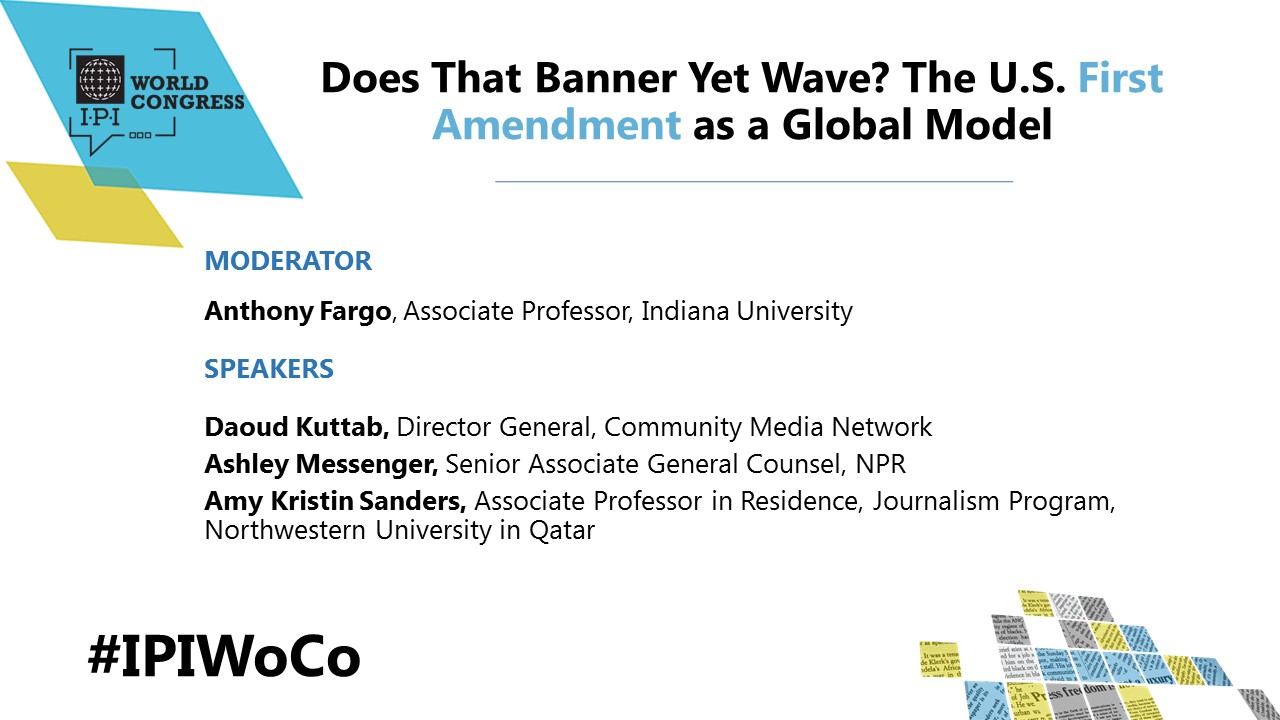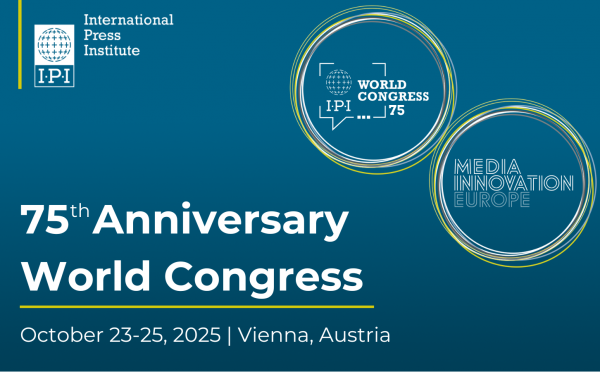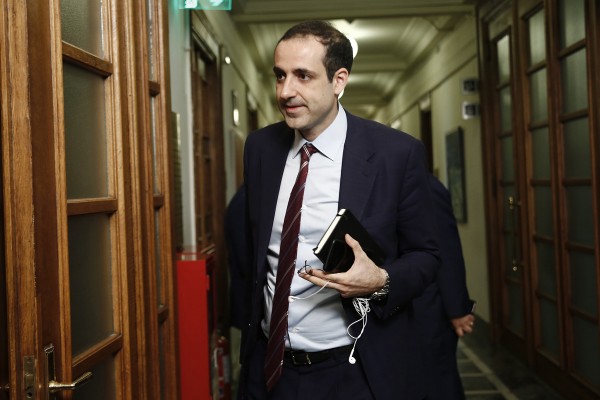During the 2016 presidential campaign in the United States, candidate Donald Trump called for “loosening up” libel laws to make it easier for public officials to sue the media successfully. As president, he has ordered government agencies not to communicate with the public or press, and he and members of his administration have almost daily accused the mainstream press of delivering “fake news” and being dishonest. Meanwhile, several state legislatures are considering bills that would put greater restrictions on citizens’ right to protest.
All of this pressure on freedom of speech calls into question the United States’ position as a leader in promoting free expression around the world, which is sometimes referred to as “First Amendment exceptionalism”. If this leadership role is diminished, what effect could this have on efforts to strengthen protections for free expression elsewhere in the world?
Watch the discussion from the panel session “Does that banner yet wave? The U.S. first amendment as a global model” held on May 19, 2017 at the IPI World Congress in Hamburg. The panel was organised in partnership with the Media School at Indiana University in Bloomington, Indiana.
MODERATOR
Anthony Fargo, Associate Professor, Indiana University
SPEAKERS
Daoud Kuttab, Director General, Community Media Network
Ashley Messenger, Senior Associate General Counsel, NPR
Amy Kristin Sanders, Associate Professor in Residence, Journalism Program, Northwestern University in Qatar



